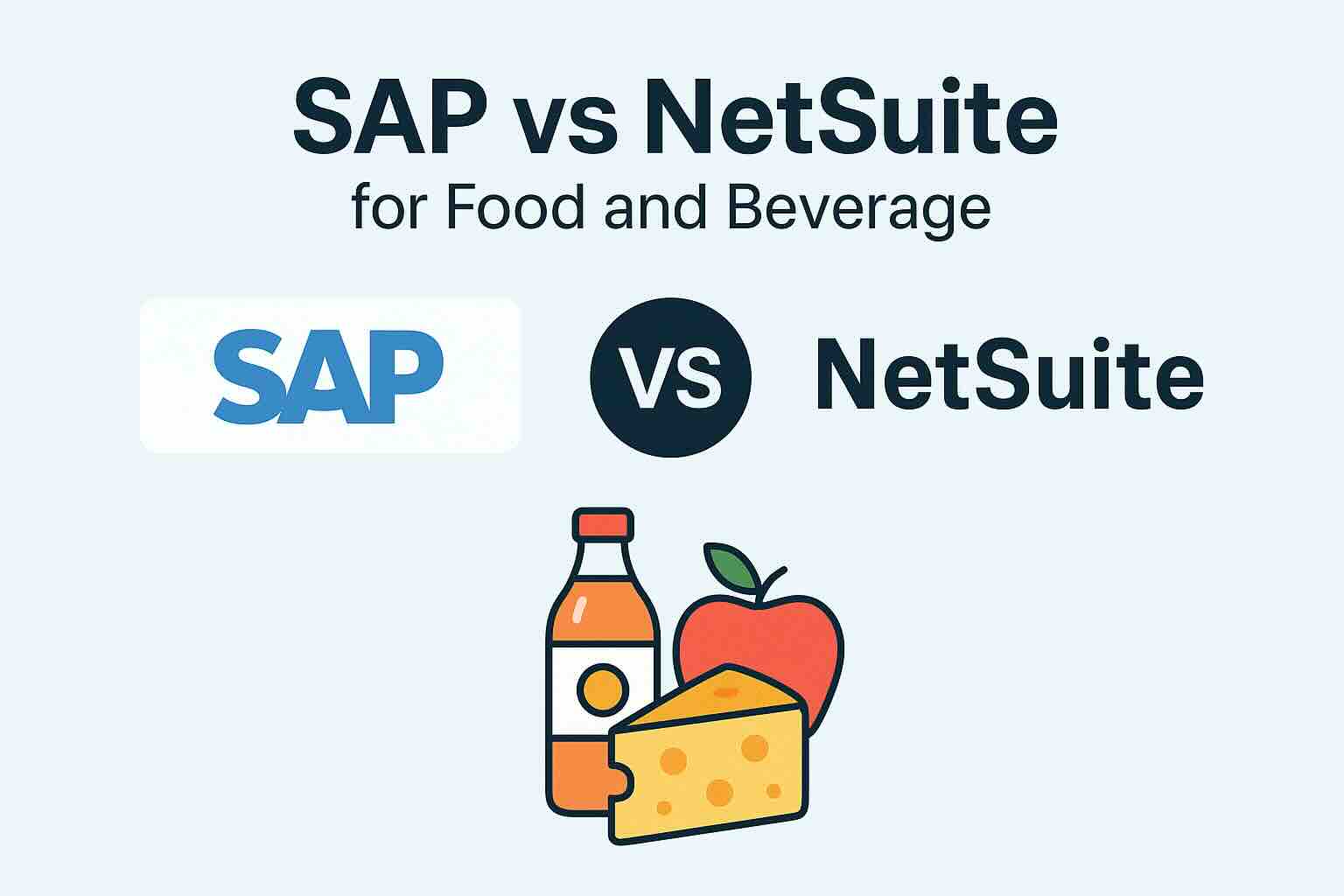Is IFS a Top ERP for Equipment Businesses?

Equipment businesses—from manufacturers to rental and service providers—often face unique operational complexities. They require robust asset management, maintenance scheduling, and real-time inventory tracking to remain competitive. For these organizations, choosing the right ERP (Enterprise Resource Planning) system is essential. One solution that has garnered considerable attention in this field is IFS (Industrial and Financial Systems). But is IFS for equipment businesses the top ERP choice? Let’s examine its capabilities, benefits, and limitations to determine if it holds up to this title.
Why Equipment Businesses Need Specialized ERP Solutions
Unlike traditional retail or manufacturing industries, equipment businesses must manage assets over extended life cycles, often involving rentals, servicing, and resales. Key challenges for these companies include:
- Equipment Lifecycle Management: Tracking the usage, depreciation, and maintenance of each piece of equipment.
- Complex Inventory and Logistics: Equipment can have multiple configurations, attachments, and accessories that must be managed and tracked across locations.
- Service Management: Efficient scheduling and execution of maintenance or repairs to maximize uptime.
- Rental and Leasing Operations: Managing rental agreements, billing, and tracking usage data across short or long-term rentals.
An ERP system tailored to these needs can significantly streamline operations, reduce costs, and improve decision-making.
Overview of IFS for Equipment Businesses
IFS, a Sweden-based ERP provider, offers a suite of ERP solutions with deep capabilities tailored to complex industries like manufacturing, aerospace, and equipment management. IFS applications are recognized for their strong focus on asset management, field service, and project management, making them well-suited for equipment-centric businesses. Key areas where IFS shines for equipment businesses include:
- Asset Management and Maintenance: IFS’s advanced asset management features allow companies to monitor the condition of each asset in real-time, schedule preventive maintenance, and manage lifecycle data effectively.
- Field Service Management (FSM): IFS is known for its strong field service management capabilities, enabling efficient scheduling and routing for technicians, which is critical in the equipment rental and service industries.
- Project Management and Tracking: IFS includes project management capabilities that are especially beneficial for businesses handling large-scale equipment or capital-intensive projects.
- Global Operations Support: For businesses with a global footprint, IFS offers support for multi-site operations, different currencies, and language variations, making it versatile for international equipment enterprises.
Key Benefits of IFS for Equipment Businesses
- Comprehensive Asset Lifecycle Management
IFS stands out for its complete asset lifecycle management features. Equipment businesses can use IFS to track the entire lifecycle of each piece of equipment, from acquisition through maintenance to disposal or sale. This functionality allows for accurate lifecycle costing, essential for businesses looking to optimize the return on each asset. - Efficient Field Service Management
In industries where equipment maintenance and service are core revenue streams, IFS’s FSM capabilities are a significant advantage. The platform provides mobile support for field technicians, optimized scheduling, and real-time parts tracking, allowing businesses to respond quickly to service requests. This is particularly valuable for minimizing downtime, which is crucial in equipment-heavy industries. - Enhanced Project Control and Profitability
For businesses involved in large projects—such as infrastructure development, construction, or heavy equipment assembly—IFS offers integrated project management. With project tracking, budget management, and resource allocation all in one system, companies gain better visibility into project timelines and costs, helping to control budgets and enhance profitability. - Flexibility and Scalability
IFS is known for its modular design, allowing businesses to customize and scale the system according to their needs. Equipment companies can implement only the necessary modules initially, adding more as their needs grow. This flexibility is especially useful for businesses looking to scale operations without overhauling their ERP system. - Real-Time Inventory and Parts Management
For equipment companies, keeping parts inventory in check is critical to ensure quick repairs and prevent downtime. IFS provides real-time inventory visibility and helps manage stock across multiple locations, allowing companies to reduce excess stock and optimize part distribution. With these capabilities, companies can streamline operations and reduce costs associated with holding inventory. - Robust Analytics and Reporting
IFS offers advanced analytics and reporting tools, providing actionable insights into equipment usage, financial performance, and service delivery. These reports can aid in forecasting, budgeting, and decision-making. With real-time data visualization, equipment businesses can react swiftly to changes in demand or operational needs.
Limitations of IFS for Equipment Businesses
While IFS has many strong points, there are some considerations to keep in mind:
- Complex Implementation Process
IFS’s robust functionality can require a lengthy and complex implementation process. Equipment businesses with limited internal IT resources may find the setup challenging, and partnering with experienced IFS consultants is often necessary. - Potentially High Costs
Due to the comprehensive nature of its modules and customization options, IFS can be more expensive than some other ERP solutions. While the investment can yield long-term savings, smaller businesses or startups might find the initial costs prohibitive. - User Training and Change Management
IFS requires a learning curve, particularly for users accustomed to more streamlined or single-function software. To maximize the system’s value, businesses must invest in employee training and change management. - Customization and Third-Party Integrations
Although IFS is highly customizable, integrating it with other software systems can be complex. Equipment businesses that rely on specialized third-party applications should ensure these systems are compatible with IFS or budget for custom integrations.
Alternatives to IFS for Equipment Businesses
IFS competes with several other ERP providers in the equipment management space. Notable alternatives include:
- SAP: Known for its extensive functionality and ability to handle large volumes of data, SAP is popular among larger equipment businesses. However, it is generally more expensive and complex than IFS.
- Oracle ERP: Oracle provides powerful tools for asset management and field service, similar to IFS. It also supports complex manufacturing environments but is often seen as more rigid and less user-friendly than IFS.
- Microsoft Dynamics 365: This ERP is highly customizable and integrates well with other Microsoft products. Dynamics 365 might be a good fit for mid-sized businesses looking for an ERP that supports basic asset and project management functions.
Is IFS the Top ERP for Equipment Businesses?
For equipment businesses that prioritize asset management, field service, and project control, IFS offers a powerful and versatile ERP solution. Its in-depth functionalities make it especially valuable for companies with complex equipment management needs, whether they operate locally or globally. While IFS may involve a higher cost and require a dedicated implementation effort, the returns in operational efficiency, reduced downtime, and improved asset utilization can more than justify the investment for the right business.
IFS isn’t the only choice, but it is certainly among the top contenders in the ERP space for equipment-focused businesses. Its specialized features and scalability make it a strong choice for organizations looking to maximize asset performance and streamline service operations, giving it a leading position in the industry. For those with the resources to invest in a sophisticated system, IFS could indeed be the best ERP for equipment businesses. To find out more about IFS click this link.
To compare IFS Cloud with 100s of other ERP solutions, you can use our new AI-powered Compare ERP tool. It’s free to use and you get a guaranteed discount on your first year’s licence fees with a referral from Compare ERP.









